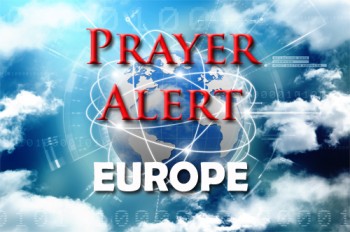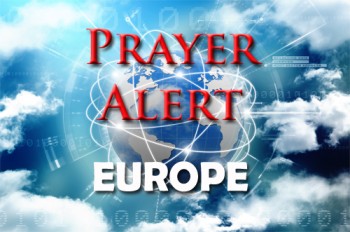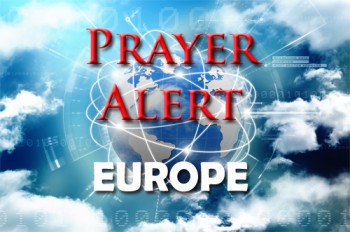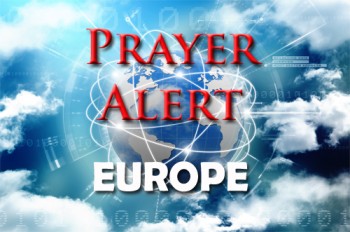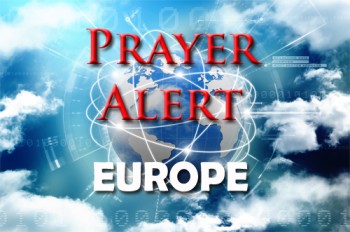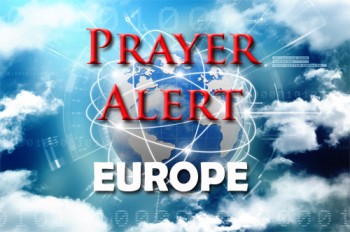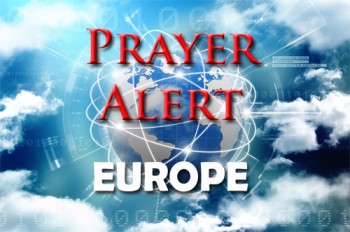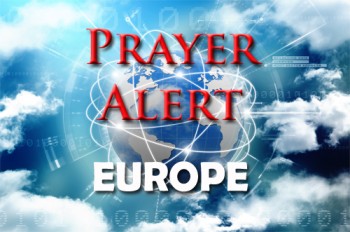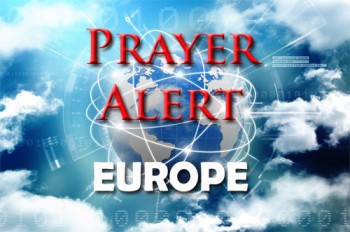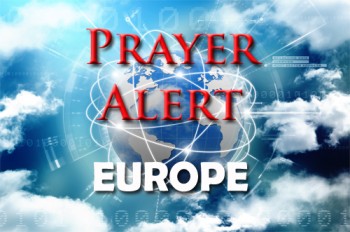Displaying items by tag: Europe
France, Germany, Spain - coronavirus second wave
President Emmanuel Macron has announced a night-time curfew in Paris and eight other cities to try to curb the rapid spread of coronavirus. It affects 22 million people and will be applied for four weeks, possibly extending to six weeks. Germany announced that bars and restaurants in higher-risk areas must close by 23:00 as the country recorded the highest daily infection figure since the start of the pandemic (6,638 in 24 hours). Private gatherings are limited to ten people from two households. Meanwhile, as Spaniards prepared to travel for a long weekend national holiday, Madrid residents were told to stay home as another state of emergency to curb rising coronavirus cases was implemented. Madrid’s leader wants a partial lockdown to avoid deeper damage to businesses: see Pray for the businesses facing bankruptcies, for the millions now unemployed, and for the governments running out of resources for furloughed workers.
Belgium: Brexit fish fight fallout
Fish are one of the main issues at the centre of Brexit negotiations. Three times a week, at 6 am, vessels return to Ostend loaded with fish for the auction. Three-quarters of the fish sold here were caught in British waters, which contain more fish than those of the North Sea. Many Belgian fishermen hope that after Brexit they’ll keep on having a good catch. Bruno Decordiar spends 60% of his time fishing solely in British waters. He’s worried that Brexit could harm his activity. ‘We are often at English ports and when we speak with British fishermen they tell us that we take all their fish,’ he said. ‘If they close the waters I'm sure we'll lose half of our income.’ Most fish landed by British fishermen are sold to the EU. A no-deal Brexit ‘fish fight’ increases competition between Europeans. If there is no fishing agreement, there will be no global trade agreement.
Europe experiencing 'pandemic fatigue'
Covid is taking an emotional toll across Europe with rising levels of apathy among some populations, the World Health Organisation is warning. Survey data reveals the scale of this ‘pandemic fatigue’ has reached over 60% in some cases. Many people are feeling less motivated about following protective behaviours after living with disruption and uncertainty for months. WHO says, ‘Although weary, people must revive efforts to fight the virus. Until a vaccine or effective treatments are available, public support and protective behaviours - washing hands, wearing face coverings and social distancing - remain critical for containing the virus that is continuing its spread across the world in 188 countries and over one million deaths. It has come at an extraordinary cost, exhausting us all regardless of where we live, or what we do. It is easy and natural to feel apathetic and unmotivated, to experience fatigue.’
Brexit bill puts UK on ‘very slippery slope’
The ex-supreme court president, Lord Neuberger, has warned that Boris Johnson’s law-breaking Internal Market Bill is taking the UK down a ‘very slippery slope’ towards dictatorship. In a virtual meeting with Britain’s top lawyers, he described it as ‘quite extraordinary’. He said the bill - which the Government admits will break key parts of the existing Brexit withdrawal agreement - sought to do away with one of the most important aspects of any democratic society. ‘This country has a remarkable, unbroken history of 350 years of observing the rule of law, and has an enviable reputation for that.’ He added, ‘Once you deprive individuals of the right to go to court, to challenge the government, you are in a dictatorship, you are in a tyranny.’ However, for the time being, Brexit trade deal negotiations have moved on and to avoid a damaging no-deal scenario, EU officials could negotiate until mid-November
Brexit negotiations
Commenting on the latest week of negotiations, one UK source said, ‘Obviously we are ready to up the pace but people are getting over-excited - there still is a long way to go and fish remains very tricky.’ On 29 September Downing Street played down the idea that a deal was imminent despite hopes that an end to talks was in sight. EU access to British fishing waters has not been solved, there remains much to be done and many do not expect a breakthrough before the mid-October summit of EU leaders. Government ministers have agreed to give Parliament a say before ever using the powers they would be granted by the Internal Market Bill. However, the latest news is that the EU has begun legal proceedings against the UK because of some controversial clauses in this bill, which could result in a court case at the European Court of Justice.
Spain: Madrid’s sharp virus spread leads to new anti-outbreak plan
A second coronavirus wave is expanding fast, and Madrid is the worst-affected place in Spain and indeed in Europe. A row has erupted over a lockdown there. The regional government did not vote in favour of the restrictions, and questioned the legality of stricter curbs on personal movement and social gatherings. Political disputes have angered many Spaniards. Health officials from Spain’s central government and the Madrid region agreed on a set of health metrics that dictate standardised restrictions in cities with a population of 100,000 or more. There are uncontrolled virus clusters in the Spanish capital. Spain has seen more than 748,000 infections and has a confirmed virus death toll of over 31,400. However, experts say all numbers understate the true toll of the pandemic due to limited testing and other factors.
Europe: coronavirus second wave
Countries across Europe are seeing a resurgence in Covid-19 cases after successfully slowing outbreaks early in the year. Albania, Bulgaria, Czech Republic, Montenegro, and North Macedonia saw higher case numbers in August than they did earlier in the year. Belgium, Italy, and the UK, Europe's worst-hit countries, are seeing a resurgence but, so far, nothing like March and April. Of the three, the UK's figures look the most worrying. France, Poland, the Netherlands, and Spain are taking action to curb a second wave. WHO’s regional director hopes the number of confirmed infections worldwide, creeping towards 30 million, will serve as a wake-up call. He said, ‘We have a very serious situation unfolding before us. There have been five million confirmed cases and more than 228,000 fatalities across Europe since the pandemic began. But we can fight it again'. See
Belarus: protests and sanctions update
Opposition leader Sviatlana Tsikhanouskaya urged the EU to approve sanctions on officials accused of rigging the recent presidential election. Despite six weekends of mass protests against President Lukashenko over the disputed vote on 9 August, the EU has not followed through on its threat to impose sanctions on 40 Belarusian officials. ‘EU leaders have reasons not to push sanctions but I asked them to be more brave’. The opposition leader, who fled to Lithuania after the election, said: ‘Sanctions are important in our fight because they could force the so-called authorities to start dialogue with us in the opposition council.’
Belarus: growing tensions at Ukraine border over Jewish pilgrims
Rosh Hashanah, the Jewish New Year, runs from 18 to 20 September. Hasidic Jews travel to Ukraine every Jewish New Year in their tens of thousands to worship at Rabbi Nahman's tomb. But Ukraine is keen to avoid a spike in coronavirus infections, and Kyiv has closed its borders to foreigners until late September. However, Ukraine has accused Belarus of encouraging more Jewish pilgrims to go to their shared border, as 2,000 (including children) are camped out at the border of the two countries, where charities and pilgrims are running out of food and medical supplies. ‘We are stuck here with no money, no roof, no food or drink’, said Haim Weitshandler. He urged the Israeli government to resolve what he called a ‘humanitarian catastrophe’. Ukraine said that Belarus was ‘exacerbating tensions’ by claiming that the pilgrims will be able to cross the border.
France: return of Yellow Vests
After pausing for the coronavirus lockdown and summer holidays, the Yellow Vests brought their anger back to the streets for a series of protests in Paris and a number of other French cities. Their last major protest was on 14 March, on the eve of local elections. This was just three days before the country went into lockdown for Covid-19. The protests were in defiance of a ban from President Macron over mass gatherings. It is almost two years since the first Yellow Vest protest on 17 November 2018. Their numbers at first soared and then ebbed. The question now is whether they will rise again like a phoenix from the ashes as social dissension grows over Covid restrictions. People fear another outbreak of violence on the Champs-Elysées, where all gatherings have been banned.
